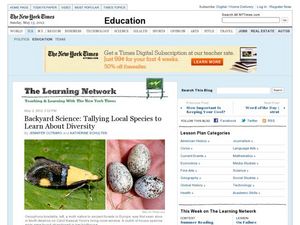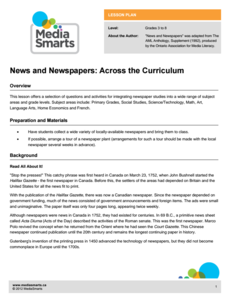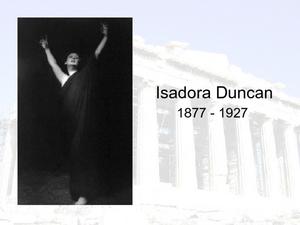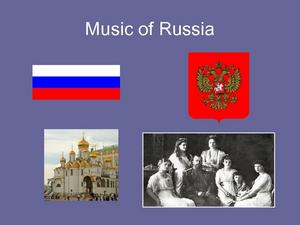Curated OER
French Revolution: The Declaration of Pillnitz
Answering document-based questions increases critical analysis and comprehension skills. The class reads a passage from The Declaration of Pillnitz then answers three critical thinking questions.
Curated OER
Writing Exercise: The Age of Reaction
Explore the French Revolution of 1830, The Age of Reaction. The class answers five short essay questions where they define political philosophies, summarize the Revolution of 1830, and discuss the effects of the Metternich system and...
Curated OER
Writing Exercise: Nationalism Around the World I
Get the class thinking and writing about nationalism around the world from 1800-1914. They answer three writing prompts in paragraph form, discussing the establishment of Turkey, Zionism, and European Nationalism.
Curated OER
The Celts
Look far back in history and you'll meet a people group called the Celts. Celts, as you'll soon find out, are a group of people who inhabited Britain 2000 years ago. Presented here, is simple information which describes a bit about...
Curated OER
Which Foods Come From Rainforests?
A very interesting and colorful presentation on the original sources of food is here for you. Learners discover where foods such as bananas, asparagus, potatoes, and oranges come from. They come from rainforests located all over the world!
Curated OER
Tallying Local Species to Learn About Diversity
Using this thoroughly-written plan, you can have your junior ecologists exploring local biodiversity. They take a journal outdoors to tally the species that they see. An article is included along with comprehension questions. The author...
Curated OER
How Does Your Garden Grow? Discovering How Weather Patterns Affect Natural Cycles
For the warm-up in this cool climate lesson, you will need to click on "Mapping" and then "US Mapping" once you arrive at NOAA's "US Climate at a Glance" page. Earth science explorers realize that 2012 was a warm winter for us. They read...
Curated OER
The Euro in Crisis
The November 14, 2011 edition of the New York Times included an article about debt and the European economy. Critical readers use the article to answer 13 who, what, when, where, and why questions.
K12 Reader
An Adverb Can Tell When
First, suddenly, always. Adverbs that provide additional information about when an action occurred are the focus of this one-page worksheet.
K12 Reader
Subject Pronouns
What or who can subject pronouns stand for? Ask your learners to determine the correct subject pronoun for 25 sentences. Learners are given the subjects and choose the pronouns from a chart of options.
K12 Reader
Taiga Ecosystems
Introduce your class to another type of ecosystem, the taiga ecosystem, through a reading passage. Class members read the text and then respond to five reading questions about the content of the passage.
K12 Reader
Colonization: for Gold, God, and Glory
Colonization, cartography, and circumnavigation. After reading a short article about early explorations, kids use the information provided to answer a series of comprehension questions.
Media Smarts
News and Newspapers: Across the Curriculum
Did you know that the Chinese Court Gazette is the longest continuing news paper in history? In addition to some great background information, this resource includes suggestions for activities across grade levels and across the curriculum.
Curated OER
History Review: Colonial America
Explore key moments in American history with the click of a mouse! Learners read 50 questions from different eras in early America, and watch the rest of the presentation to find more questions to answer.
Curated OER
Witches through History
Spark interest in a historic phenomena that lasted over 1000 years. The topic, witch hunts throughout history! A timeline beginning in 1000 BC follows how various religious groups have persecuted those thought to be witches up through...
Curated OER
Witchcraft & Sorcery
Give learners a chance to understand the practices and beliefs associated with witchcraft through an anthropological lens. Like any other belief system, witchcraft stems from specific sociological needs. This practice is well-defined in...
Curated OER
Isadore Duncan
Who is Isadore Duncan? If you're a teacher of dance, you might be interested in this informative presentation. Biographical, philosophical, and personal information on the life and contributions of this famed dancer are given in an easy...
Curated OER
Music of Russia
Music around the globe may sound different, but it always tends to function partly as a mode of communicating religion, rights of passage, and oral tradition. Delve into the world of Russian music. Folk, peasant, Cossack, and orchestral...
Curated OER
Nouns 2
Noun: a person, place, or thing. Assess your middle schoolers knowledge of nouns (and which ones are capitalized) with this worksheet. It's set up great for independent learners; after every five sentences, learners are encouraged to...
Curated OER
Reading Comprehension 5: Level 8
Why is an atlas called an atlas? Because it is named for the Greek Titan, Atlas, of course. Young readers learn all about Atlas and atlases in a short passage used as the basis of a reading comprehension exercise. After responding to...
Curated OER
Reading Comprehension: Guinness Book of World Records
If your learners are curious about human achievement, superlatives, or esoteric trivia, the Guinness Book of Records is a way to tap into instrinsic motivation and relevance. Here's an informational reading that will grab their attention...
Curated OER
Following Instructions
Designed to assess your class's ability to follow directions, this reading activity has learners split into groups, read a series of instructions, read a passage, and answer two lists of questions. Can they remember to raise their hand...
Curated OER
Idioms
Use this podcast lesson plan to familiarize scholars with the characteristics, history, and cultural implications of idioms. As part of the Walking Classroom curriculum, kids listen to a 12-minute podcast as they walk around campus. If...
Curated OER
Interpreting Circle Graphs
What does this pie chart mean? Once scholars can analyze a circle graph on a basic level (i.e. "Most people prefer cats"), it's time to delve deeper into it. They examine two graphs here, and are given the total number of participants...
Other popular searches
- European History
- European Union
- European History Europe
- European Explorers
- Maps of Europe
- Eastern Europe
- Blank Maps of Europe
- European Exploration
- Eastern Europe Cultures
- Europe and the Atlantic
- Victory in Europe Day
- Outline Maps of Europe

























